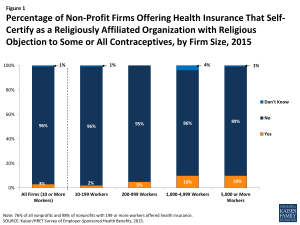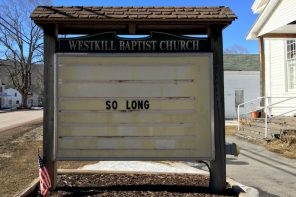One of the assumptions behind those seeking a religious exception to the contraceptive mandate in the Affordable Care Act—as well as behind religious exceptions in general—is that they are more or less exceptional. By that I mean that they are deployed in a narrow range of circumstances by a narrow range of actors who believe their religious liberty would be threatened by taking part in a specific act or service provision.
Inherent in this argument is the idea that the small harm done by allowing a few limited exceptions—letting the Little Sisters of the Poor refuse to cover contraceptives or a baker to decline to bake a cake for a same-sex wedding—is more than offset by the greater good of protecting the foundational right of religious liberty. For instance, the Becket Fund for Religious Liberty, which represents the Little Sisters of the Poor, agues that the mandate would force a “small group of religious objectors into submission.”
But what if that’s not the case? What if it’s not a “small group” seeking exceptions, as suggested by the Kaiser Family Foundation’s new analysis of employer health benefits plans?
Kaiser found in fact that 10 percent of nonprofits with more than 1,000 employees have requested an accommodation to the contraceptive mandate, as did five percent of firms with between 200 and 999 employees. According to Kaiser, “many of the nonprofits who have sought the accommodation are likely health systems or educational institutions affiliated with the Catholic Church, which objects to birth control.”

According to Kaiser, there are “over 6,800 Catholic schools (5% of the national total and 22% of all private schools), 645 Catholic nonprofit hospitals, and more than 160 Catholic Charities agencies across the country.”
While most Catholic health care institutions have accepted the accommodation, a number of the nation’s 260 Catholic institutions of higher learning as well as Catholic nonprofits are seeking a broader exemption that would in effect bar their insurers from providing contraceptive coverage as specified under the accommodation designed by the Department of Health and Human Services.
The Supreme Court is scheduled to hear a consolidated case challenging the exemption in the spring. The large number of Catholic nonprofits currently using the accommodation and potentially seeking a broader exemption means that potentially thousands of women could lose contraceptive coverage and, according to Kaiser, would have to “pay out of pocket for services that could potentially exceed hundreds of dollars a year.”




